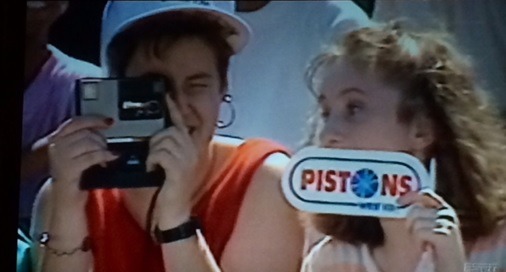 It’s getting so my least favorite phrase pertaining to radio programming has become “baby steps.” Oftentimes PDs use it as a way to describe progress – in coaching air talent, transitioning a station, or getting through to a tough-to-manage employee.
It’s getting so my least favorite phrase pertaining to radio programming has become “baby steps.” Oftentimes PDs use it as a way to describe progress – in coaching air talent, transitioning a station, or getting through to a tough-to-manage employee.
While we’re at it, maybe we should add “tweaks” to the list, too. That one is used for similar purposes – to describe incremental improvements in a station’s sound, a music library adjustment, or a personality’s journey.
The reason I find myself getting bothered by these terms and phrases that connote gradual progress is that at this juncture in the audience’s relationship with radio, I’m concerned that no one is hearing any of it.
There was a time a decade or so ago when radio – its stations, its DJs, its contests, and its shows – were integral parts of people’s lives and even how they defined themselves. Here in Detroit, it said a lot about you as a person whether you had a bumpersticker on your car, van, or truck displaying WRIF, WABX, W4, or WLLZ. People identified with stations, followed the antics of their personalities, responded to parody songs, proudly sported T-shirts and hats, and laughed at our TV commercials, and played “The Birthday Game.”
 I thought of this the other night while watching the amazing ESPN documentary, Bad Boys. In the middle of this incredible profile of that (in)famous Detroit Pistons team was this crowd shot – sporting one of the scores of specialty WRIF bumper stickers that were so identifiable with the station, many lacked the call letters. That’s because Detroiters – not just rockers – knew that racetrack shape was indelibly linked to the station they had grown up rocking to.
I thought of this the other night while watching the amazing ESPN documentary, Bad Boys. In the middle of this incredible profile of that (in)famous Detroit Pistons team was this crowd shot – sporting one of the scores of specialty WRIF bumper stickers that were so identifiable with the station, many lacked the call letters. That’s because Detroiters – not just rockers – knew that racetrack shape was indelibly linked to the station they had grown up rocking to.
It’s not that radio doesn’t matter today, because it does. But most stations – and yes, there are exceptions – are part of a much larger entertainment fabric in most people’s lives. While consumers still flock to station events, and avidly listen to funny morning shows and compelling talk hosts, radio now shares the spotlight with many other audio and media choices.
It takes more to stand out in this environment. Baby steps will no longer cut it.
Of course, it goes well beyond radio – or TV, or print, or websites. That’s because we’re all distracted – our heads buried in our gadgets. A look at a doctor’s office waiting room, a boarding lounge at a train or airport, or even a sporting event reveals people who are paying more attention to the device they’re holding than the environment they’re in.
Radio has to compete in this new world order of attention deficit. And to do so effectively requires big moves, bombast, a loud horn, repetition, and pride – all actions and values that are polar opposites to baby steps and tweaks.
I always find it remarkable when stations spend $30K for a perceptual study, followed by $20K for a music test, and their “net net” actions boil down to adding another ‘80s song an hour, moving the stopsets two minutes earlier, or tossing in a new benchmark feature to the night show. And they expect results?
While these moves matter and may, in fact, create some incremental added benefit (especially in PPM markets), most stations are content to silently make those adjustments, sit back, and hope the audience will notice.
Chances are, they won’t.
In many cases, the need to remind the audience that we just interviewed hundreds and hundreds of area consumers, asked them a battery of questions, learned the following things, and took these subsequent actions – especially when they have obvious listener benefit – has never been more important.
Subtlety is a wonderful quality but it won’t get you noticed. It won’t change habits. And it never shocks consumers into paying attention to what you’re doing. Part of being a great programmer is the realization that the consumer environment is changing. It is not about scheduling flawless logs, achieving perfect rotations, and creating mirror-image days, weeks, months, and years.
Put those baby shoes away, be bold, take action, tell them about it, and make sure your station is getting credit for the great things it does – or will do.
There’s never been a better time to be loud and proud.
- What To Do If Your Radio Station Goes Through A Midlife Crisis - April 25, 2025
- A 2020 Lesson?It Could All Be Gone In A Flash - April 24, 2025
- How AI Can Give Radio Personalities More…PERSONALITY - April 23, 2025




Right on, Fred. Marketing 101: Tell them what you are going to do. Do it. Then tell them what you did. That third part is sometimes missing from the equation but necessary to close the loop for the listener/target. Glad you mentioned PPM markets because there are stations laying back and thinking that station recall doesn’t matter anymore. Try recycling audience without unique and creative station imaging behind a great sounding brand. Pretty tough in today’s saturated sensory input environment.
Appreciate the comments and perspective, Jack. Thanks for making the point about how this is basic marketing and how PPM “strategies” have thrown many stations off course.